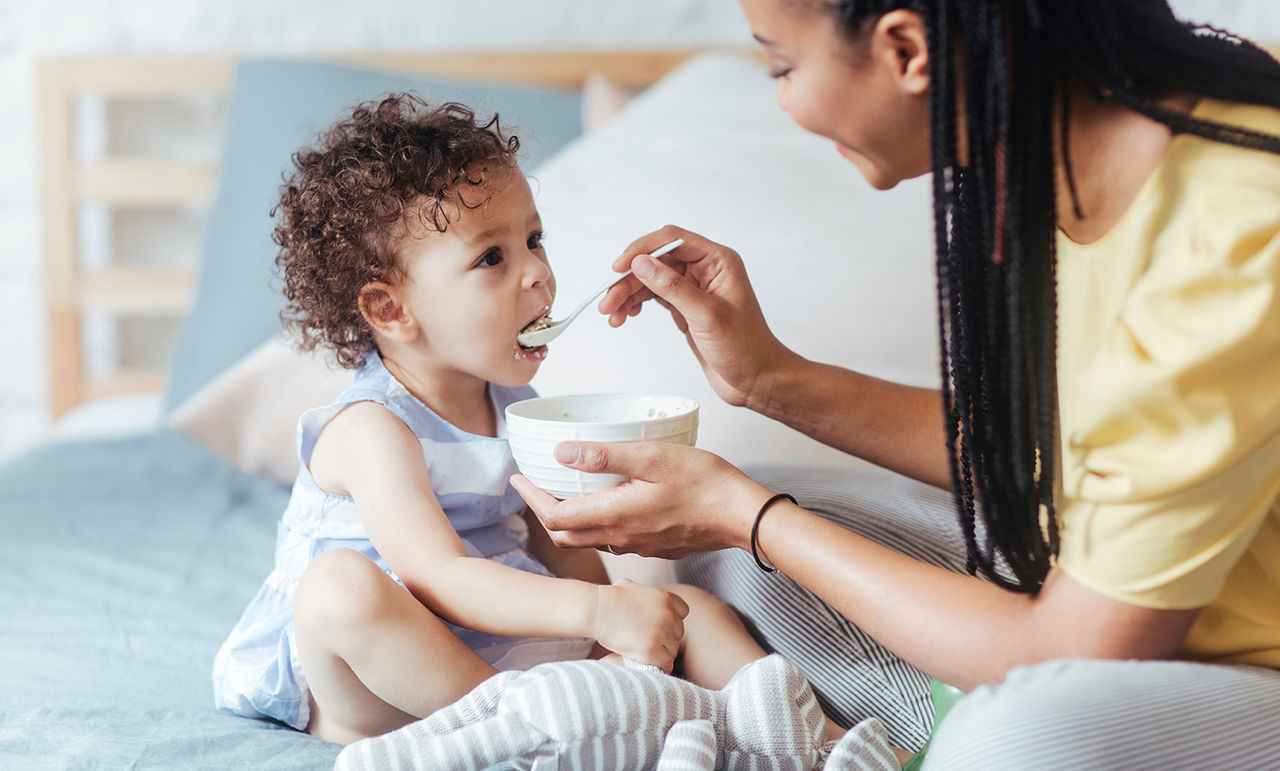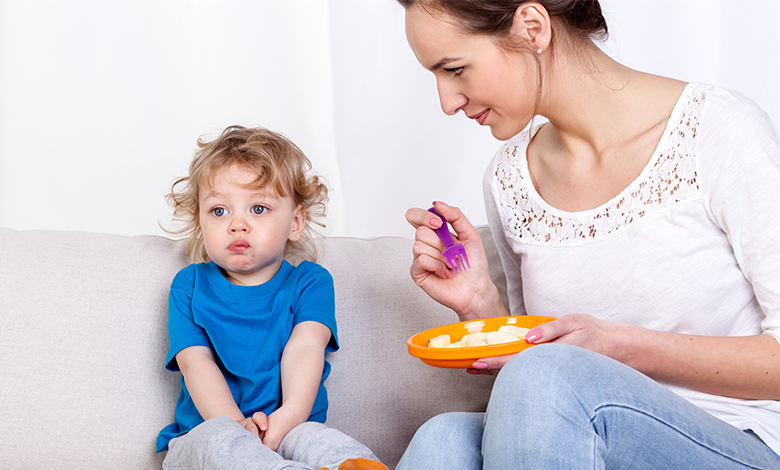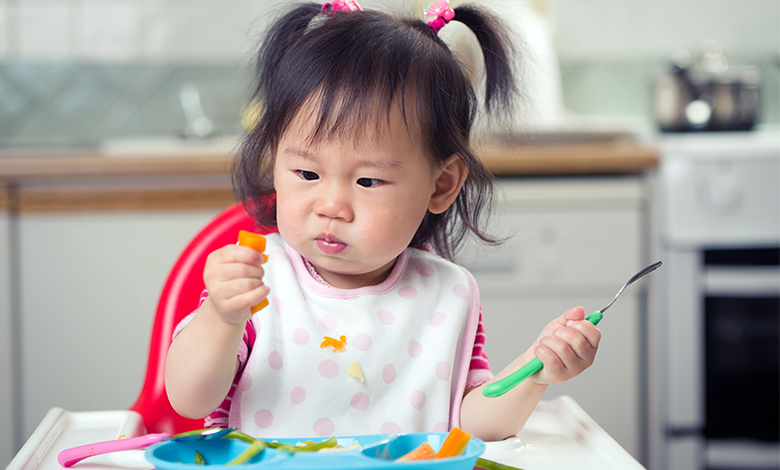- Some are taking their first steps!
- Many little ones at this age communicate extensively without saying many words, but some key words like "mama" and "dada" may be achievable.
- Playtime is more important to your baby than ever, be sure to make more than enough time for it.
Your Baby's 12 Month Developmental Milestones

Key points
Time moves so quickly when you have someone as amazing as your beautiful baby to take care of! It has already been a whole year enjoying your child's development; watching them grow, learn, and enjoy the world around them!
Beyond singing 'Happy Birthday' to your little one, you can enjoy observing the 12 month milestones your baby may reach this month. These important milestones signify the beginning of toddler development and an ever-expanding array of new skills and further engagement.
Learn everything you need about your baby's development into a toddler within this article. That way, you can prepare to celebrate not just their first birthday, but also their developing language, emotion, and motor skills.
Healthy foods are the backbone of your little one's more prominently solid diet, especially around the 12 month mark. To ensure they are getting more than enough nutrition through their foods, offer them a balanced diet full of the five main food groups: fruits, vegetables, protein, dairy, and grains.
Toddlers can enjoy family meals now. Simply put a small portion of what the rest of the family are having on their plate. You may need to cut the food up into more manageable size pieces for them.
The range of nutrients offered by these food groups will help significantly in your toddler's development and immune system growth. Some sources of healthy foods most children enjoy at this age include:
● Well-cooked vegetables in small chunks.
● Cut up Fruits.
● Well-cooked pasta and rice.
● Lentils.
● Small amounts of cooked chicken and red meats.
● Cooked eggs.
● Fresh or tinned fish, generally cooked.
● Breads.
● Cheese.
● Yoghurt.
So long as your baby is eating a balanced diet and enjoying a range of finger foods, you may begin introducing cow's milk at the 12 month old stage. This milk, along with other dairy products, should be full-fat to support their growth and provide your little one with energy for the day. However, cow's milk and other new foods require careful observance upon consumption in case of any allergies or intolerances.
Breastfeeding
There is no specific time in which breastfeeding your baby should come to an end. The weaning process[1] should typically begin when both you and your baby are ready to move on.
The World Health Organisation (WHO) recommends breastfeeding until 2 years and beyond. Do not feel rushed to move your little one into solely eating solid foods as breast milk offers plenty of nutrients needed for growth. Consult with a child health or Well Child nurse, or your baby's doctor if you are unsure of when to begin the weaning process.
When it comes to developmental milestones related to sleep, a 12 month old baby has very similar patterns to the previous month. They are typically sleeping 12 to 15 hours a day, with 3 to 4 hours of this time spent in a daytime nap or two.
While most babies at this age sleep through the night, every little one is different and this includes their sleeping patterns. So long as they are getting enough hours and follow a consistent routine, any pattern is more than okay. Getting them to sleep when your toddler wants to stay up all night can be difficult. Continue reinforcing their routine as getting sufficient sleep can be so beneficial in the long run.
Nevertheless, the increased cognitive development around this age may also cause your child to experience nightmares during 'active' sleep; the period also known as the REM cycle that is fairly light and people are most likely to wake from. This experience can be stressful and scary for your child, so be ready to soothe them and help them get back to sleep. Nightmares are common during this age and for the next few years so getting better at knowing what will calm down your child can be very helpful.
By the end of their first year, your little one has mastered a broad range of skills that arise from their development. While 12 month old children do not generally learn too many new skills during this stage, they are typically working hard to perfect previously learnt skills. This practice is vital to making core skills like lifting themselves into a standing position become instinctive.
Physical
Physical development at 12 months of age features the perfection of fine motor skills and the art of beginning to walk around unassisted. Many children this age may be able to:
● Pull themselves up to a standing position without assistance.
● Drink from an open cup so long as you are holding it.
● 'Cruise' around the house, which is where they walk with the aid of furniture.
● Take their first steps unassisted, including the aid of furniture.
● Use a pincer grip to pick up finger foods with their thumb and pointer fingers.
Cognitive
The overarching brain development your toddler has gone through over the past year has accumulated various interesting cognitive skills. This includes being able to solve simple puzzles that are offered to them.
Common cognitive milestones children at this certain age may be able to complete include:
● Searching and finding hidden objects in their environment, such as small objects under their blanket. This is often easier to complete if you hide familiar objects they will want to find above all else.
● Putting objects into containers to store them, such as blocks or toys into storage bins.
Emotional
Emotions are becoming more complex for your child and they are beginning to show a broader range of responses to situations. Some of these may include:
● Crying sympathetically if someone else is distressed. This is particularly true if other children cry.
● Hug you of their own volition.
● Feel less inclined to experience separation anxiety but will still prefer to play in your presence.
Communication
Although they are not capable of speaking complex words by any means, your little one is beginning to grasp how communication works. They still rely mostly on non-verbal communication methods such as pointing or grunting, but they may also be able to:
● Begin following simple verbal requests or simple instructions once prompted. For example, they may give you something if you ask and offer your hand out.
● Wave 'bye-bye' to others, sometimes even without prompting.
● Understand 'no' and will pause or stop once it is said.
● Call parents by their title more reliably, or use special names for loved ones.
● Maintain eye contact more reliably when you are talking to them.
Social
Alongside increased empathy and communication skills come more advanced social milestones. While babies often experience anxiety when separated from you, many toddlers are beginning to branch out and connect with others around them. This can be seen when they:
● Begin pointing at people they know, especially if prompted with their name or relation.
● Enjoy playing games with you and others that involve more complex motor skills, like clapping games.
Milestones to monitor
Every child's development is unique and occurs at their own pace. It is important to never get discouraged if your little one is yet to display certain milestones by 12 months, their strengths may lie elsewhere!
However, you may consider contacting your doctor or child health or Well Child nurse if you notice your 12 month old baby is not:
● Making or enjoying eye contact.
● Offering displays of affection like hugs.
● Initiating play or using objects like push toys.
● Retaining skills.
● Noticing or minding if you leave a room or return.
● Following or recognising simple instructions.
● Pointing, waving, or using other gestures.
● Seeing or hearing clearly.
Toddler development may often require patience as you wait for your little one to begin learning a new skill, but you can support their development by regularly engaging in playtime. Some of the more beneficial forms of interaction you may try introducing to your baby include:
● Naming objects or toys during play to help them learn what they are called.
● Encouraging pretend play with dolls or themed kits.
● Using a push toy, especially when they begin standing unassisted.
● Singing nursery rhymes to learn about music, rhythm and language.
● Rolling or gently kicking a ball between the two of you.
● Doing very simple puzzles, such as placing blocks into the correct holes.
● Encouraging them to try and repeat words you say.
● Reading picture books and allowing them to take the lead in turning pages or pointing to things.
● Problem-solving games like stacking or opening objects.
Allowing your toddler to have fun while learning new skills can help with their retention and make practising enjoyable. Involving yourself in these bouts of fun can also help deepen your bond with your little one.
At 12 months, it is time to celebrate your baby's first year with an amazing birthday! With this celebration being the first one in your baby's life, it is common for parents to want to make it a memorable occasion. That is why we have provided some helpful tips to get the organisation process underway.
Party food ideas
When organising a first birthday, you are likely to be catering to not just your little one's interests, but also those of their little friends, older siblings, and the grown-ups accompanying them. This means offering a wide range of party foods that will appeal to all parties while remaining healthy, such as:
● Sandwiches with a range of simple fillings, such as vegemite, cheese, or soft meats.
● Fruit or vegetable muffins.
● Smoothies.
● Easy-to-grasp finger foods such as cut-up fruits or cooked vegetables.
It is always important to provide party foods that are high in nutrition and are loved by your child. This means avoiding overly sugary drinks like soft drinks. Instead, offer water alongside the party foods to keep everyone hydrated.
Their first birthday should be all about them, so be sure to plate up their favourites for all to enjoy!
Present ideas
No list of 1st birthday party ideas is complete without the consideration of presents. Most babies at this age are beginning to form attachments to certain types of toys, so be sure to include those they will enjoy.
If you or any of your guests are having trouble picking out the perfect gift ideas, inspiration can be drawn from the following list:
● Push toys.
● Pretend play toys such as dolls, action figures or stuffed animals.
● Ride-on wooden or plastic toys, such as tricycles.
● Colourful puzzles, stacking objects and sorting toys.
● Easy-to-grip colouring and drawing utensils such as chalk.
● Floating bath toys.
● Blankets or patterned mats to play on.
● Books with colourful pictures.
● Balls and other large objects that encourage play through throwing or rolling.
● Toys that make sounds like rattles.
Birthday cake ideas
Your toddler's first birthday cake is your first chance to showcase your baking skills and their favourite interest at the time. Even if you are not the type to bake, you can look into ordering from professionals with birthday cake design ideas such as:
● Your baby's favourite animal.
● A number cake in the shape of a '1'.
● Building blocks.
● A rainbow cake, decorated with a treat.
● Themes like fairies, pirates or space.
● Unique ingredients like ice cream or jelly.
● Specific flavours like strawberry or chocolate.
● Structures like castles, musical instruments or trains.
Party bag ideas
To help conclude what is sure to be a spectacular party, offering party bags to the guests can allow them to take the fun home. When looking for first birthday party bag ideas, you can always look to incorporate the party's theme if there is one, or your child's favourite treats. The objects included in a bag should be appropriate for other 12 month old babies, which can be both edible or inedible for variety.
Some popular party bag ideas for a first birthday party include:
● Stickers.
● Balloons.
● Bubbles.
● Finger puppets.
● Bath or beach toys.
● Colouring books and utensils.
The most important aspect of organising a first birthday party is ensuring everyone is having fun and is safe. Be sure to enjoy this celebration with other loved ones and your baby, making happy memories you are sure to hold onto for years to come
No matter their age, your little one's health and well-being is always at the forefront of your mind as a parent. That is why we have provided some helpful information about what to expect at the 12 month mark, including information about their safety and vaccinations.
Vaccinations
If you are immunising your baby in Australia two vaccinations are due this month.
Should you have any questions about the vaccinations contact the National Immunisation Program Schedule or speak to your GP or child health nurse.
Babies in Aotearoa New Zealand, on the National Immunisation Schedule, are also due for one vaccination this month.
Speak to your Well Child nurse, GP or healthcare professional with any questions you may have about immunisations.
If there are any previous vaccinations your child has yet to receive, it is important to schedule these appointments before the 12 month mark. This secures their wellbeing and keeps them resilient against various illnesses or health conditions.
Safety
The increased mobility that comes with your 12 month old learning to stand and cruise around means a greater need to monitor them.
You can be secure in their safety when you keep an eye out for the following household features:
● Sources of water such as swimming pools, baths, rivers, beaches, and streams.
● Tripping or slipping hazards, such as electrical cords or wet floors.
● Heights such as changing tables, furniture or stairs.
● Hot appliances, water, or food.
● Household products and medicines that may be poisonous.
● Heavy objects that can be toppled.
● Small objects that can be swallowed or choked on.
Remaining vigilant about these possible dangers, constantly watching over your child, and suitably baby-proofing your home can help keep your baby safe. If you have any additional concerns about their health or safety, it is best to get in contact with a healthcare professional.
Self-care tips for parents
The increasing independence of your little one may require more constant observation from you, but their consistent routine can allow more opportunities to make time for yourself. Whether it is after you have put your child to bed, down for a nap, or they are under the care of a loved one, you can find plenty of moments to enjoy the things you love.
Engaging in hobbies, social visits, exercise, and a healthy diet can help you take care of yourself. This self-care can be taken a step further by rewarding yourself with massages, luxurious baths, shopping trips, outings with a loved one, or participation in sports. No matter what you prefer, reaching the toddler stage deserves a celebration of yourself and all of your efforts.
We’re here to help
Our team of nutritionists, dietitians and midwives at Careline are healthcare professionals with big hearts. Specialising in infant and child health, they offer parents and carers, free nutrition, feeding and product advice and lots of moral support. Contact our Careline Experts by phone, LiveChat or email.
Always consult your doctor, midwife or healthcare professional for advice about feeding your baby.
Every feeding journey is unique
Not every parent can breastfeed. Not every parent can produce breast milk. No matter what choice you make, we will support your unique feeding journey.
We at Nutricia believe in providing the best nutrition for babies, which is why we recognise breast milk as uniquely superior for babies, it provides many benefits. It is important that mums have a healthy diet to support breastfeeding. A decision not to breastfeed, or partial bottle feed, may reduce breast milk supply making it difficult to reverse. The cost and social implications of using feeding methods should be considered. Always seek professional for advice about feeding your baby. Ensure formula is used as directed as improper use can affect baby’s health.
Please note: These articles are meant to give you a general sense of the growth and development of your newborn baby. However, it’s important to remember that every baby grows and develops at their own pace. This article is not a substitute for medical advice. Always speak to your healthcare professional about any concern you have concerning your child.
Raising Children Network. Babies and Toddlers: Food Groups [Internet]. [cited 2024 January 8]. Available from: https://raisingchildren.net.au/babies/breastfeeding-bottle-feeding-solids/healthy-eating-habits/babies-toddlers-food-groups
Australian Government Department of Health. National Immunisation Program Schedule [Internet]. [cited 2024 January 8]. Available from: https://www.health.gov.au/topics/immunisation/when-to-get-vaccinated/national-immunisation-program-schedule
Manatū Hauora - Ministry of Health. National Immunisation Schedule [Internet]. [cited 2024 February 27]. Available from:
https://info.health.nz/immunisations/national-immunisation-schedule
Better Health Channel. Child Safety and Injury Prevention [Internet]. [cited 2024 January 8]. Available from: https://www.betterhealth.vic.gov.au/health/healthyliving/child-safety-and-injury-prevention
World Health Organisation. Infant and young child feeding [Internet]. [cited 2024 January 31]. Available from: https://www.who.int/news-room/fact-sheets/detail/infant-and-young-child-feeding

Get in touch with our Careline experts
When your little one is unhappy or unwell you want reliable support from a trusted source. Our Careline team of nutritionists, dietitians and midwives specialise in infant and child health, offering free nutrition, feeding and product information.



